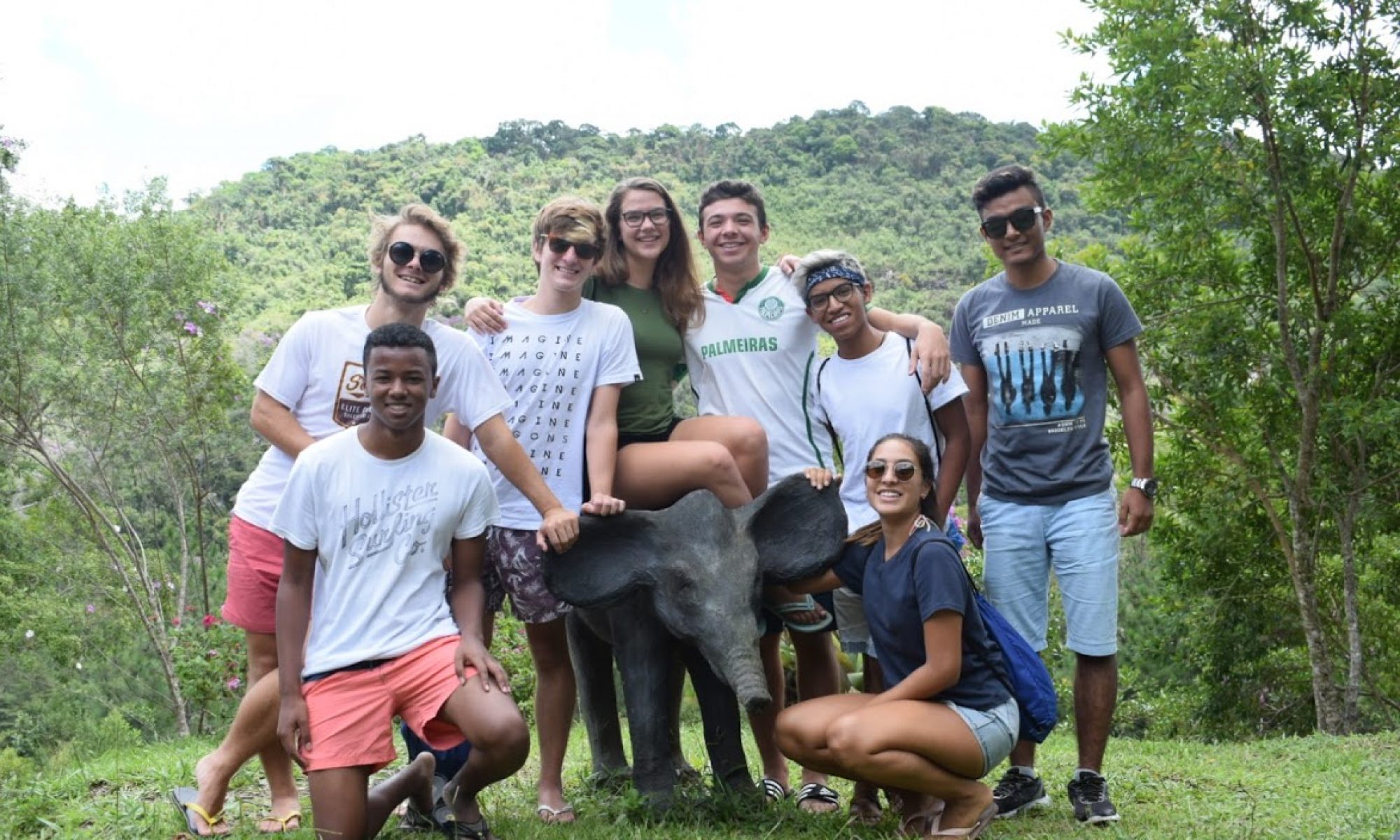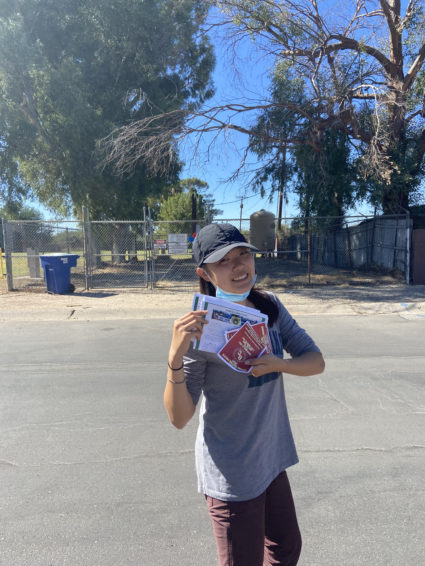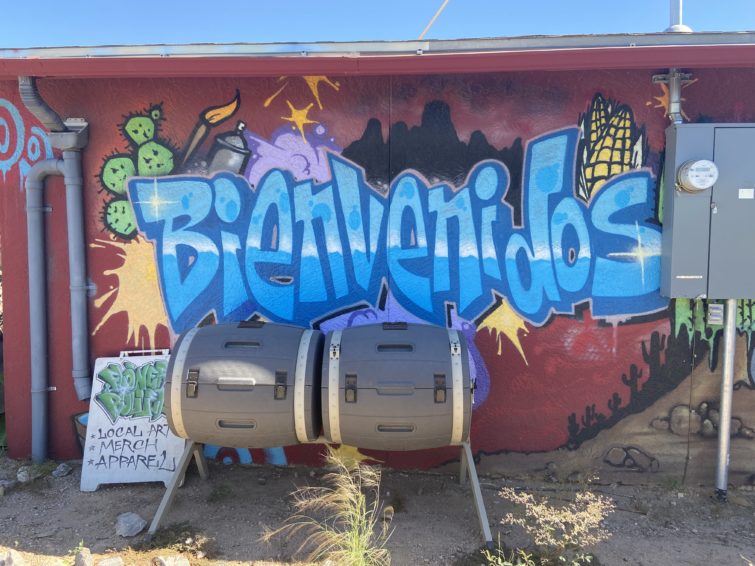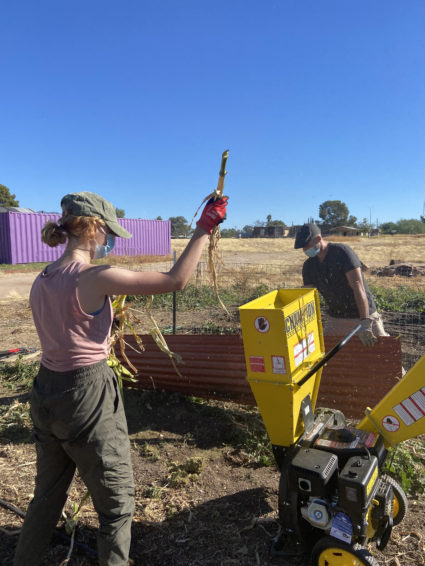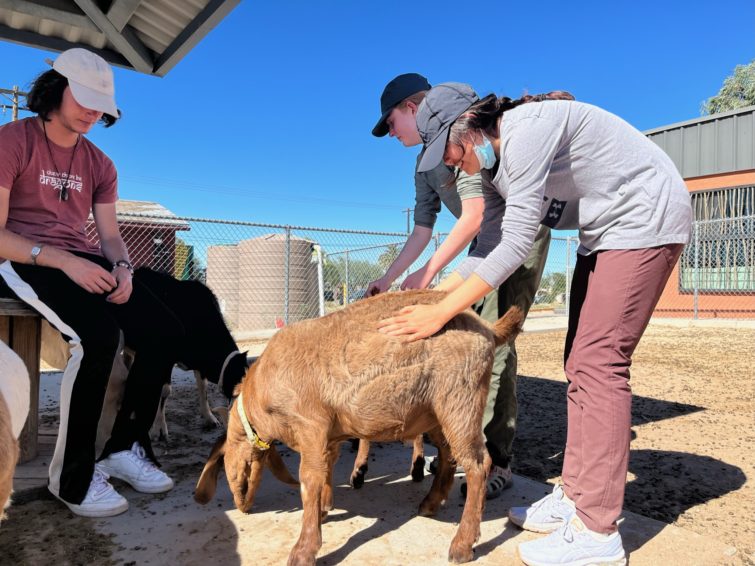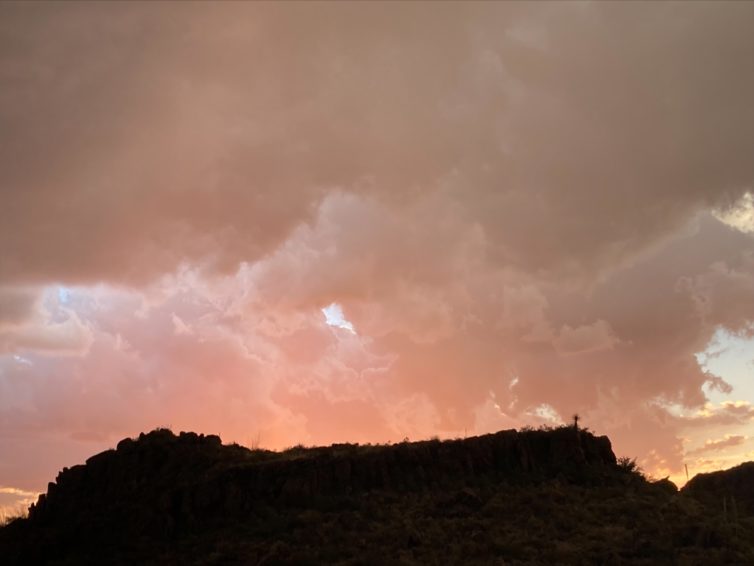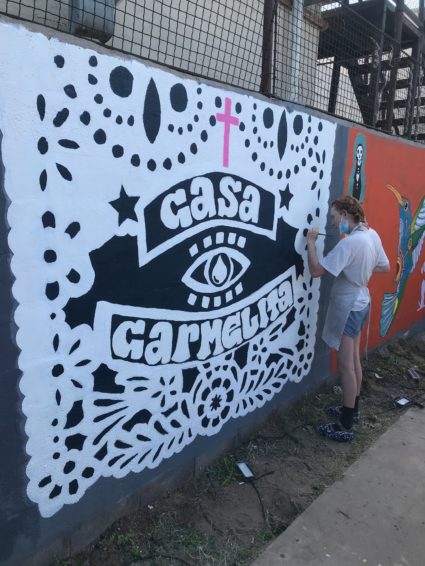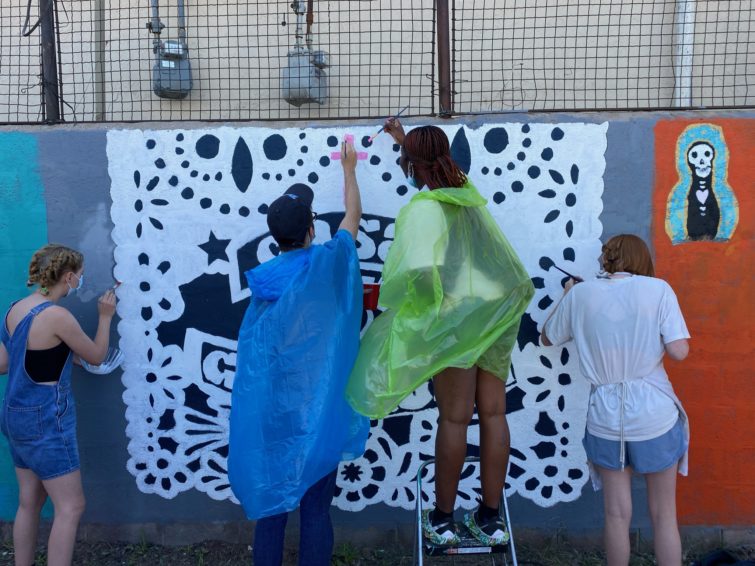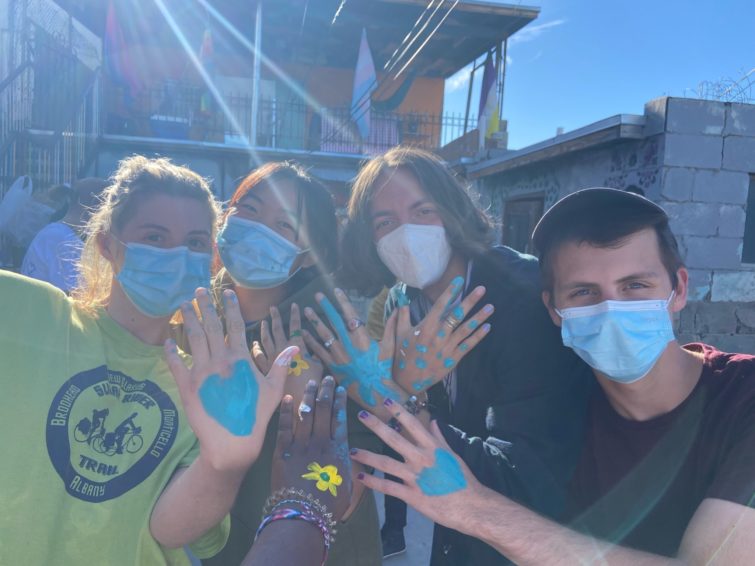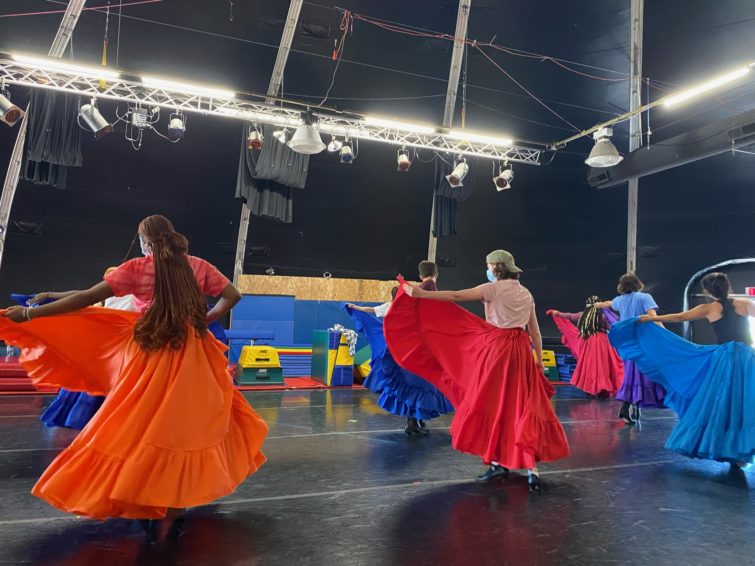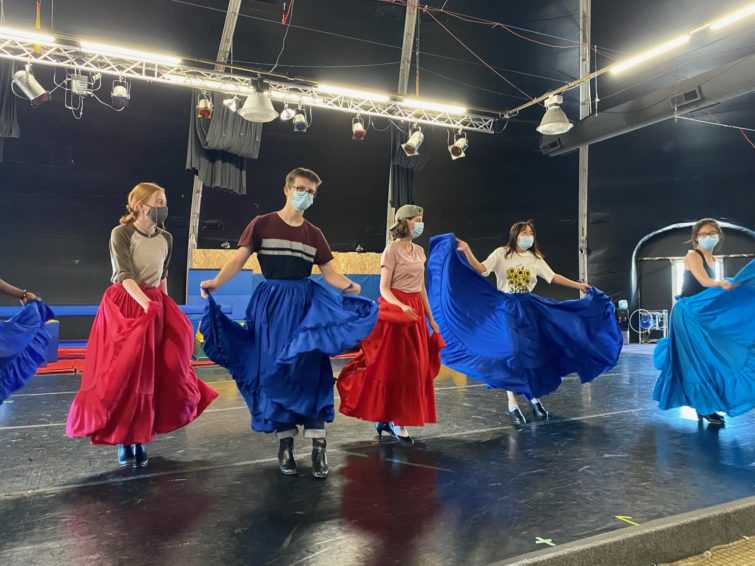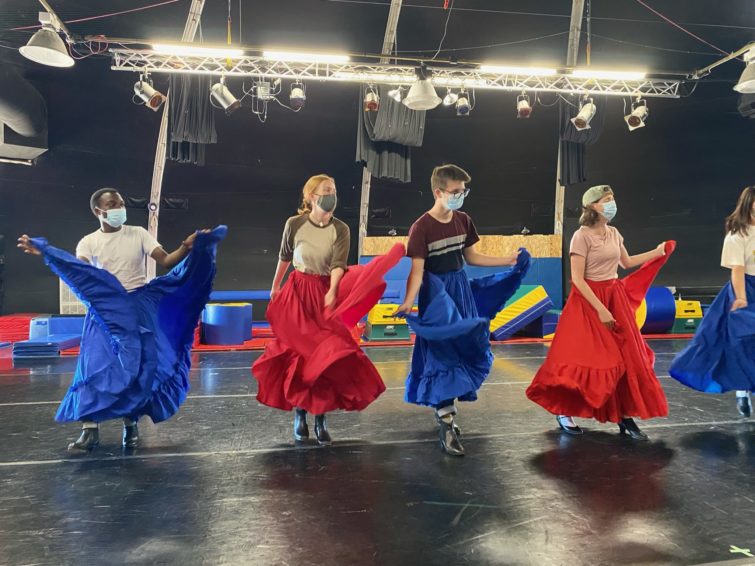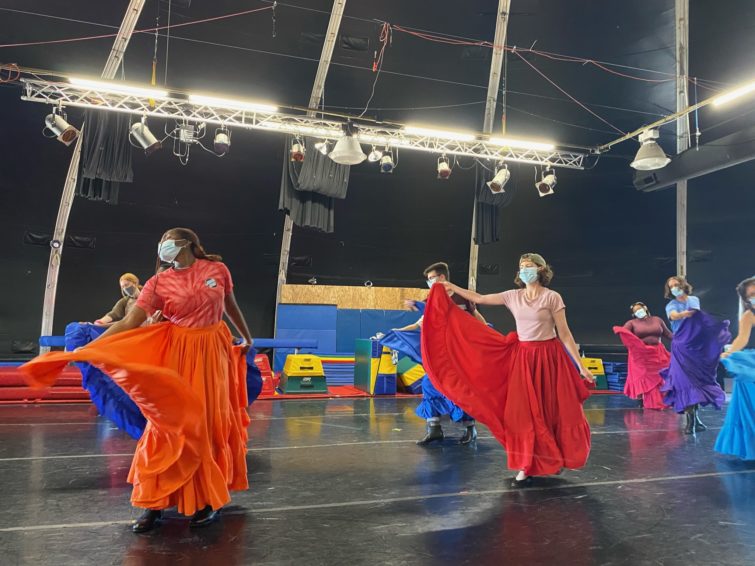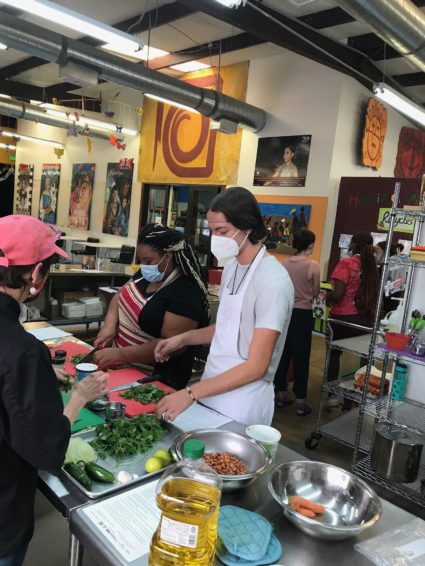by Ben, Civic Semester Participant
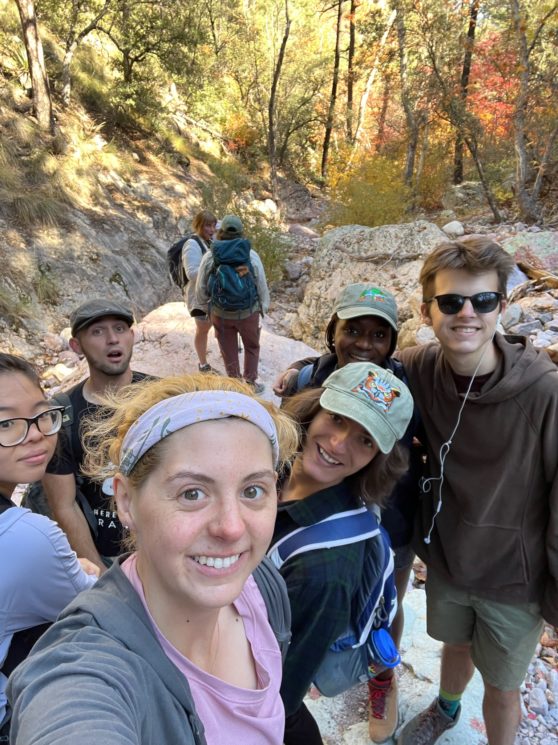
On November 5th, we got up early, ate some breakfast, and drove to Arizona. The air was cool and crisp, and as our cars climbed into the mountains, it began to feel like fall again. Since coming further south, we’ve gotten accustomed to the earthy greens and browns of the desert, but seeing the vibrant reds and yellows of the leaves reminded us of Truchas, or even of home. As we stepped out, our hiking boots hitting the rocks and dust beneath our feet, we were hit by a wave of smells: sage, rosemary, mint, and pine. Birds were chirping in celebration of the new day and we started working our way up the trail in a loose single file.
This was our fourth hike we’ve done as a group, and our first in Arizona. During each trek, our conversations ebb and flow, constantly changing focus and character. One moment we’re joking about fake business ideas and the next we’re discussing the importance of mental health. Throughout the line, a chorus of conversations might occur, with different social atmospheres being formed based on who is in earshot. These tend to shift often, especially as we pause for water or break file to cross a river bed, leading to new combinations of people. Alternatively, sometimes there are no conversations. Instead, we climb meditatively, listening to our own breathing and the rustling of the leaves. It’s this variety that I think I love the most. In a group of 11 people, it can be difficult to find space for different kinds of interactions among ourselves. When we hike, connections are more fluid, and we can choose to focus on the whole group, a few people, one person, or just ourselves. Ultimately, despite any spoken words, we complete the climb together, and that creates a bond. This program is teaching me the importance of movement and the body not only for health, but for community as well. A relationship is created and felt when you push each other to reach a peak. There’s something special about that moment, about seeing ourselves clearly as a group.
November 5th also marked one month until the program ends, and nearly two months since it began. My perception of time is not the same here as it was in Truchas. Some of that is because we’re taking a different pace, but a lot of it is because I can feel the finish line approaching. As a result, I’ve been finding it difficult to stay completely present and engaged in the group and our visits.
But there are moments that pull me back and remind me why I’m here. Our hike was one of those. I’m so grateful for these moments and I have so much love for everyone in the cohort. Here’s to an amazing final month 🙂
Talk soon – Ben
Originally posted here.
